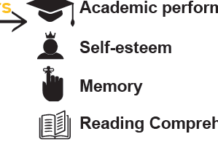Less than 50% of youth in foster care in the United States graduate high school, according to statistics found on the Orphan Foundation of America. That compares to a 2008 high school graduation rate of 85% for all Missouri teens, reported on the Missouri Department of Elementary and Secondary Education. Worse yet, only about 10% of teens coming from foster care enroll in college, and less than 2% complete their work and earn a bachelor’s degree, according to Connect for Kids.
In Missouri, there are around 26,000 children under the age of 18 in foster care, according to the Orphan Foundation. What do these statistics mean to the teens that live in foster care?
 Bennie Williams, age 19, has been in foster care since the age of 3, living in 5 different foster homes over those 16 years. Williams did graduate from high school on time and now attends college, but it was a challenge.
Bennie Williams, age 19, has been in foster care since the age of 3, living in 5 different foster homes over those 16 years. Williams did graduate from high school on time and now attends college, but it was a challenge.
For example, when he was he was placed in a home in northern St. Louis County. “My school was located in the city of St. Louis. My placement wanted to send me to a school district in the county. I stood up in court and asked the judge to allow me to stay at my current high school because I was on the track of graduating,” he recalls.
Williams is currently a member of Missouri’s Blue Ribbon Task Force on Aging Out. He also represents youth in foster care as the 2009–2010 State Youth Advisory Board.
“What allowed me to more forward,” says Williams, “was this quote that I live by: The future belongs to those who believe in the beauty of their dreams by [former First Lady] Eleanor Roosevelt.”
 Phillip Wheelington, age 18, has been in the foster care system since he was 6. He has lived in 8 foster homes and attended 24 different schools. “I learned how to integrate myself [into foster homes] and meet new people of all ethnic backgrounds, and getting to know all kinds of environments,” states Wheelington. “I had to learn about [St. Louis] county and the city life. And it was hard!”
Phillip Wheelington, age 18, has been in the foster care system since he was 6. He has lived in 8 foster homes and attended 24 different schools. “I learned how to integrate myself [into foster homes] and meet new people of all ethnic backgrounds, and getting to know all kinds of environments,” states Wheelington. “I had to learn about [St. Louis] county and the city life. And it was hard!”
However, all the moves took a toll on Wheelington. “I was split up from all my siblings, but after awhile I got used to being lonely and without them, then I stopped being sad.” He admits that he got into fights.
His school work also suffered. “Since I was in court so much and moving to so many different schools, I was not able to catch up on all my work and credits.” Eventually, he was held back in school.
Despite all that he has faced, Wheelington says that “I am just like any other teenager.” Teens like him have to work harder, he states, “and quit downing ourselves because we are in foster care; we have to keep our heads up and understand that we can do it.”

This work is licensed under a Creative Commons Attribution-NonCommercial-NoDerivs 3.0 Unported License














I loved this article.This gave me encouragment because i was once in foster care and i had to be held back because my foster care mom did registered me in school.So I didnt go to school at all.But very good writing.:smile:smile:smile
This article sheds an excellent light on an issue that is frequently overlooked in the school system. Many students do not know much about the foster care system and do not understand why their peers may be struggling. This is both inspirational and reassuring to students caught in the ever-changing waves of foster care, and provides realistic hope to those determined to graduate. It also sparks a potential call for reform in the Missouri (and United States) adoption and foster care systems, which, while they are superior to some, are still quite flawed. The facts and statistics are well attributed to accountable sources and the article overall was an incredible read. I would love to see more about the affects of foster care on Missouri teens.